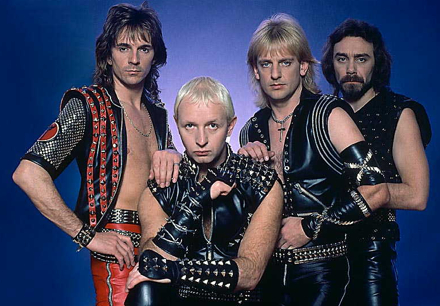Pretentious females who have labeled themselves as a “geek girl” figured out that guys will pay a lot of attention to them if they proclaim they are reading comics or playing video games. Celebrities are dressing up as geeks to reach a larger audience. Richard Branson labeled himself a geek for crying out loud.
~Tara Tiger Brown, Dear Fake Geek Girls: Please Go Away
3/26/2012
Here is the catchy counter arguement in video format:
Nothing to Prove - Geek Girls & The Doubleclicks
My take is this: I'm inclined to think that people who fear the supposed onslaught of Fake Geek Girl hordes are at best worried about the devaluation of whatever Geek Cred they have and at worst misogynists.
I've seen both Fan Boys and Comic Professionals make statements that suggest they think Fake Geek Girls are detrimental to their hobby in some way. I think its telling that the same people who are so down on Fake Geek Girls don't seem to have a problem with Booth Babes. Next time a thread about a con wanting to ban Booth Babes pops up, watch how many people will cry in outrage. That to me reveals their personal agenda: Girls in outfits are okay if they are there to entertain me - not get in front of me in the queue for the next Firefly panel.
I used to see this same sort of back and forth in my Heavy Metal days. Back in the 80's, it was common for some people to call metal fans of a certain ilk Posers. However, the definition of Poser was a very slippery thing. Whenever I would press other metal heads or punk rockers for a clear definition, they would start with how someone might dress a certain way but not truly be into the scene. (Which sounds a lot like the FGG issue, doesn't it?)
In the early 80's the classic image people would give me was guys who weren't in a band, but would dress up like Judas Priest and just show up at rock clubs to look cool.

As the years went by, the definition of Poser changed such that it was now guys who looked like Poison or Guns and Roses but might actually be in a band.
The defining difference being that the Poser band was seen as jumping on a musical bandwagon and weren't playing "Real Metal."

So, what's struggling band supposed to do? Well, try to play Real Metal of course. The only thing is - no one could agree what that meant.
Was it Thrash/Power Metal like Metallica?

Nope. Not if you were a Slayer Fan.
And Slayer Fans were called posers by Celtic Frost fans.
And Doom Metal fans thought that Death Metal fans were all posers.
Ect...
The Anti-Poser mindset was like an Onion. As you drilled down through the layers metal of you would always encounter metal-intelligensia who viewed fans who had not heard of the latest undergound band or long lost 60's pioneers in the genre as inferior.
Comedian and unabashed metal-head Brian Posehn made a video about this very idea:
BRIAN POSEHN - More Metal Than You
Currently, I'm seeing a return to this More Metal Than You attitude as fans of the New Wave of Thrash bands like Evile and Warbringer run up against fans of bands like Black Veiled Brides and Avenged Sevenfold. This sort of thing is ultimately unhealthy for the scene as is encourages exclusionary divisions which make people uncomfortable.
I think that's the danger of the whole Fake Geek Girl mindset. I don't really think there is a vast, far reaching conspiracy of Fake Geek Girls vying for the ever so valuable and long lasting attention of fan boys everywhere. It's just an idea that makes some insecure fans feel superior to people they view as a threat in some way.
As far as I'm concerned, no one gets to set the rules on what a real fan is. The guy who can name every single X-men and the guy who only reads black and white independent comics don't get to tell the fan who just started comics with Marvel Now or the Avengers movie that they are a fake geek.
Trying to exclude people from the hobby because they don't meet your standards as a fan is a real jerk move.
- Jim

14 comments:
Not alone is the "fake Geek girl" thing sexist, but it strikes me as being logically flawed an conception. Women have been successfully getting guys' attention since time immemorial without having to "fake" interest in "guy things"--or at least showing only a modicum of polite interest. Why on earth would they dive full force into a somewhat derided subculture just to get something they can easily have anyway?
The phenomenon isn't new, just the application. For decades, many fandoms have their issues with the hardcore, minutiae-intensive fans looking down on casual fans--the "TRUE FAN" exclusivity. It seems that one of the adaptations to being ostracized was to retreat further into fandom and push back against those not as deeply entrenched. Now that geeks aren't "the others" and there are a rapidly-growing number of self-identified (and proud, how dare they!) casual fans, the TRUE FAN litmus is getting expanded to an entire gender in order to maintain it. Not that it was ever anything but an amorphous credential to begin with, as one person's "casual" is another person's "obsessed".
Mainstream acceptance of geek culture has caused more fans of every stripe to be more comfortable expressing their passions, as well as creating a broader base of fans. Male fans are suddenly confronted with many, many more female fans than they knew existed, and as every fanboy knows from his X-Men or D&D or Star Trek, people tend to reject that which is strange and different to them. Additionally, the "Fake Geek Girl" label is predicated on the idea that girls look at the average geek and find them desirable. Because as we all know, geeks are stereotyped as bastions of hygiene, social grace, and romance, among other positive attributes.
Speaking of fake fan vs. real fan, I've even seen the mentality that if you are truly a fan of Marvel characters or DC characters then you must and always buy and support whatever they put out regardless of whether or not you are happy with the creative teams or the direction the books are taking. Basically the idea that no real fan would "abandon" or "turn their back" on the characters. As though love of the characters must also equal total company loyalty at all times.
My wife often talks about how among some video-gamers there is the idea that a casual fan of video games is somehow less real. That the only real gamers are the ones who devote every waking minute to playing the games. So I guess the idea is that you're only a real fan of video games if you're like the South Park kids in that World Of Warcraft episode.
@Trey - Yep, I think the fact that they stretch logic like that sort of tells the tale.
@Luke - Well said!
And you are right about the way casual and obsessed are tossed around. It's like the only safe place to be is exactly like the person making the determination - anything else puts you on the wrong side.
@Matt - you bring up a good point about the whole Marvel/DC Fan for life secret order that seems to bubble under the surface on so many message boards. I've always wondered what it is that those people get from seeing the company they don't favor experience financial misfortune. I think it's some form of validation or affirmation.
Video gamers are a whole other world. :D
One of my friends made the analogy that comic book/company loyalty is akin to following a sports team: you may not like the lineup or how they're playing, but they're YOUR team and you want to be there if/when they achieve the greatness you know they can, so you keep tuning in and rooting for them.
Of course, the analogy really breaks down because it costs very little to keep watching TV, whereas keeping up with just the Avengers or Superman might run hundreds every year. Telling your friends or the internet how much you don't like it is actually countered by the money the company is making off you.
Right! It sends exactly the wrong message to those comicbook companies. Every single cent anyone spends on DC or Marvel tells them exactly this:
"Oh, people are buying this. Clearly they must like the way we are doing things so we should keep doing things this way because it makes us money."
You can write letters, comments, and blogs till you're blue in the face but if they do not see a substantial fluctuation in those sales numbers, they will not care. Even if those numbers are low compared to previous decades.
But I think for some the idea of NOT going to the comic shop on Wednesday is actually the only thing worse than seeing their favorite character continually treated like garbage, fodder for some guys bad fanfiction made canon, or at best just another name for the IP farm. They'll do it because it's what they've always done even though it gets a little more heartbreaking (and costly) with each passing year.
I completely agreed with you in this article. Just the fact that more people are even slightly interested in these things should make us all rejoice. Then, I took a look at myself and realized that, not necessarily with Geek Girls, I'm guilty of this. I have a friend. He watches the comic movies (judges them harshly most of the time), buys all the toys for his kids, has an emblem here and there but he's never read a comic a day in his life. I feel myself thinking things like "he's not allowed to rep this hard!" To the point of almost being offended. Why do you think this is? Loyalty to the characters maybe? It's almost an uncontrollable feeling. Like I'm Dexter with his dark passenger. I would never verbalize this to him of course. I should feel happy that he likes what I like and just expresses it differently. I don't know. Maybe I just have to much fandom inside me and think it's all mine.
@Stephen - I think I totally understand how you feel. There is a certain sense that because you follow the books, your knowledge is a bit more authentic. So it rubs you the wrong way when you encounter people who seem to have a cursory knowledge and are content (or even proud) of that. I have a bit of that same feeling when I hear coworkers discussing the movies sometimes. Usually, it will be some guy who hasn't read the books for 20 years making a miserable attempt to explain the origin of the Mandarin or something to another coworker. I just want to stop them both and tell them the real deal, but its not really the sort of thing to get wound out about. :)
I have a friend who collects Wonder Woman. He loves the heck out of her, but you could quiz him on the comics all day long and he wouldn't have a clue. Most of his working knowledge is directly from Lynda Carter and some assorted cartoons. I'm hard-pressed to look at his room full of memorabilia and say he's not as much a fan as I am, but I've stopped myself from doing it on occasion.
I really just chalk it up to a sort of competitiveness. We all want to be "better", even when it comes to being fans. I don't think there's anything really wrong with that on occasion, because any two fans likely will have "better" and "worse" areas and we can delight in sharing and even debating those differences.
It's bad when it becomes lording it over others. There's no joy in that, just an elitist arrogance and (to bring this full circle) in the current clime likely means misogyny as well. Competition can be friendly and the diversity of fandom is something to treasure and endorse, not mock and exclude.
@Luke - I agree about the diversity of fandom (and life in general) Often I find that what some fans might lack in historical knowledge is more than made up by their love and enthusiasm for the genre - usually far more than mine at times.
Seeing the genre through other peoples eyes, like your friend, sometimes gives you a fresh perspective as well - or can introduce you to a whole new world to enjoy. I used to just dismiss the old Jimmy Olsen comics (never really read them as a kid in the 70's) But after listening to the Tom Vs The Flash podcast I was tipped off to what I had missed all these years.
Post a Comment